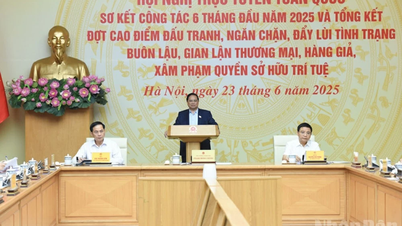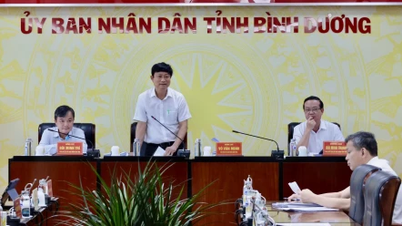Unilateral termination cases
According to the Law on Insurance Business No. 08/2022/QH15 of the National Assembly effective from January 1, 2023, which stipulates cases of unilateral termination of insurance contracts in the following 4 cases:
Case 1, the insured does not pay the insurance premium or does not pay the full insurance premium within the agreed period or after the premium payment extension period;
Case 2, the insurance company, branch of a foreign non-life insurance company (collectively referred to as the insurance seller) and the insurance buyer do not accept the request to change the level of insured risk.
Case 3, the insured does not take measures to ensure the safety of the insured object.
Case 4, the insurance buyer does not agree to transfer the insurance contract list.

Buyers should consider carefully before signing a life insurance contract.
Unilateral termination of an insurance contract also involves consequences that are specific to each case.
Specifically, in case 1, the insurance buyer must still pay the full insurance premium up to the time of unilateral termination of the insurance contract. This provision does not apply to life insurance contracts, health insurance contracts, except for group insurance contracts;
For life insurance contracts and health insurance contracts, the insurance company is responsible for paying the insurance money to the insured when the insured event occurs before the unilateral termination of the contract. In addition, the insurance company has the right to deduct the insurance premium up to the time of unilateral termination of the insurance contract;
With property insurance contracts, damage insurance contracts and liability insurance contracts, the insurance company is responsible for compensating the insured when the insured event occurs before the unilateral termination of the insurance contract and has the right to deduct the insurance premium as agreed in the insurance contract.
In cases 2 and 3, the insurance company is responsible for refunding the premium paid for the remaining period of the insurance contract as agreed in the insurance contract.
Insurance companies are also responsible for compensating and paying insurance money according to the agreement in the insurance contract when the insured event occurs before the unilateral termination of the contract.
In case 4, the insured will receive the refund value or the paid insurance premium corresponding to the remaining time of the insurance contract, suitable for each insurance product.
In case the value of the asset is lower than the operational reserve of the transferred insurance contract portfolio, the amount the insurance buyer receives back is calculated based on the ratio between the value of the asset and the operational reserve of the transferred insurance contract portfolio.
In addition, in cases 1 and 2, for life insurance contracts with surrender value, the insurance company must pay the insurance buyer the surrender value of the insurance contract, unless the parties have another agreement.
Cancellation of contract due to fraud in purchasing insurance
In addition to unilateral termination of insurance contracts, the Law on Insurance Business also regulates cases of cancellation of insurance contracts, especially in the context of many people being provided with false information by consultants to persuade them to buy insurance.
Specifically, this content is shown in Article 22, which regulates responsibilities and legal consequences for violating the obligation to provide information.
Accordingly, when concluding an insurance contract, the insurance seller is responsible for providing complete and accurate information related to the insurance contract, explaining the insurance terms and conditions to the insurance buyer; the insurance buyer is responsible for providing complete and honest information related to the insured object to the insurance seller.

Both the buyer and seller of insurance are responsible for providing complete information, otherwise the contract may be cancelled.
In case the insurance buyer intentionally provides incomplete information or provides false information in order to enter into an insurance contract to receive compensation or insurance payment, the insurance company has the right to cancel the insurance contract.
In this case, the insurance company does not have to compensate, pay insurance money and must refund the insurance premium to the insurance buyer after deducting reasonable expenses (if any) as agreed in the insurance contract. The insurance buyer must compensate the insurance company and the foreign non-life insurance company branch (if any) for any damages arising.
In case the insurance company intentionally fails to fulfill its obligation to provide information or provides false information in order to enter into an insurance contract, the insurance buyer has the right to cancel the insurance contract and receive a refund of the insurance premium paid. The insurance company must compensate the insurance buyer for any damage (if any).
Talking to the Journalist and Public Opinion Newspaper about the situation where many people are being “tricked” into buying insurance or into saving money instead of buying insurance, Lawyer Truong Quoc Hoe (Head of InterLa Law Office, Hanoi Bar Association) said that in these cases, the first thing to mention is the fault of the insurance buyer. Why did the buyer not re-read the terms and their own rights before signing a high-value contract, and then only file a lawsuit when the contract was completed?
"However, the buyer is at a disadvantage because he does not have information or expertise, so there are fewer mistakes anyway. Usually, customers only receive partial advice, the good things are pointed out, and the bad things are rarely mentioned or not mentioned at all. If the customer has all the information and still decides to buy, then it is okay, otherwise, disputes are very likely to arise.
This is also a reminder about the management of the authorities as well as a warning to insurance buyers to be alert to the information provided by consultants and absolutely not sign papers and documents whose content they do not fully understand," said lawyer Hoe.
Attorney Truong Quoc Hoe also recommends that insurance buyers should review their contracts to find unreasonable points that affect their personal rights and request the insurance seller to make timely adjustments.
Source



![[Photo] Prime Minister Pham Minh Chinh chairs the national online conference on combating smuggling, production and trade of counterfeit goods.](https://vphoto.vietnam.vn/thumb/1200x675/vietnam/resource/IMAGE/2025/6/23/4a682a11bb5c47d5ba84d8c5037df029)
![[Photo] Prime Minister Pham Minh Chinh holds meeting to launch exhibition of national achievements to celebrate 80th National Day](https://vphoto.vietnam.vn/thumb/1200x675/vietnam/resource/IMAGE/2025/6/23/0c0c37481bc64a9ab31b887dcff81e40)
























![[Photo] Party Congress of the Central Internal Affairs Commission for the 2025-2030 term](https://vphoto.vietnam.vn/thumb/1200x675/vietnam/resource/IMAGE/2025/6/23/5bf03821e6dd461d9ba2fd0c9a08037b)








































































Comment (0)